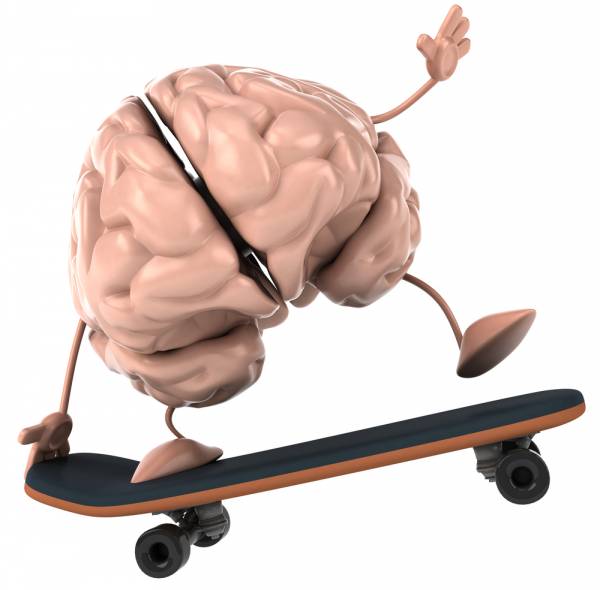When you’re a kid or, better yet, a toddler, your parents buy you all kinds of toys to help stimulate brain development, so you don’t end up only counting to “potato.” They buy us building blocks so we can decipher if we want to be architects (I suppose), memory cards to help build our ability to recall thoughts and ideas, books to enhance our language skills, and other such items to kick-start the development of future geniuses.
When you’re a kid or, better yet, a toddler, your parents buy you all kinds of toys to help stimulate brain development, so you don’t end up only counting to “potato.” They buy us building blocks so we can decipher if we want to be architects (I suppose), memory cards to help build our ability to recall thoughts and ideas, books to enhance our language skills, and other such items to kick-start the development of future geniuses.
After this phase of our lives, however, the toys stop gathering under the Christmas tree as we find them useless or uncool. Sure we have junior high and high school to stimulate some brain growth but for some, that ends outside of school hours. By the time we’ve made it to college, we are reality-slapped that we have to depend on ourselves to maintain our cognitive health and development, which can be a frightening thought through the blackouts and cheeseburgers.
All joking aside, many people overlook the concept of actively treating their brain like a vital organ or muscle when in fact it’s one of the most important features of the human body. It is the source of control over, but not limited to, our motor skills, judgment, emotion, language, perception, memory, thought, attention, ability to plan and carry out tasks, and ability to live a purposeful life.
Like other muscles and organs, our brains tend to become less sharp as we age leading to diseases like Alzheimer’s and other forms of dementia that significantly alter the way we operate on a daily basis. While these diseases set in later in life they are not entirely attributed to age and can be caused by several outside factors such as poor diet and lifestyle, as well as heredity.1 Sadly, Alzheimer’s has become the sixth leading cause of death in the United States and as of yet, is not curable.
Now that I have torn apart your heart strings and poured lemon juice into your wounds, I wanted to discuss ways to prevent the debilitation of cognitive health and encourage you to begin your journey to staying forever brain young. Like your quads or your abs, your brain also needs nourishment if it’s going to last you the next few decades. As careful as we are to work our legs and drink protein shakes after each workout, your brain also requires specific attention to ensure its and your quality of life.2
4 Tips for Long-Lasting Mental Health: 1. Get Fit
As if this isn’t beaten into our heads enough, we now have another reason to get our butts, or brains, to the gym. Your brain needs circulation, blood flow, and oxygen just as much as other organs and muscles do in order to function productively. Accordingly, aerobic exercise has been found to reduce brain cell loss in elderly patients and allows for new cells to grow. There aren’t requirements on duration so long as you are actively exercising each day or regularly.
4 Tips for Long-Lasting Mental Health: 2. Feed Your Brain
Research shows eating a diet specifically low in fat and cholesterol but high in protein and sugar can reduce the risk of developing dementia and side effects leading to the disease. We are all pretty much aware of what “body healthy” is but what is “brain healthy?” If you’re on a clean eating diet now you’re on the right track. Staying away from foods high in fat will greatly reduce the risk of blood clots as they greatly increase your risk in the development of Alzheimer’s.

Products such as vegetables and dark-skinned fruits promote excellent brain health because of the antioxidants, vitamins, and nutrients they provide directly, rather than from a pill. Also recommended are nuts and cold-water fish for the omega-3 fatty acids they contain.
4 Tips for Long-Lasting Mental Health: 3. Become a Social Butterfly
Staying close with friends and family and being involved in social activities and social situations can greatly contribute to a long life of strong cognitive health. (NOTE: This does not promote ditching Tips 1 & 2 and only maintaining a large social group!) Along with physical exercise and a healthy diet, you should be incorporating activities into your life to maintain those social skills we developed and honed as kids. Keeping your brain active through conversation can make an enormous difference as you age. Not only that, but if you work out with a friend or work with your partner to maintain a healthy diet, you can kill two birds with one stone.
4 Tips for Long-Lasting Mental Health: 4. Let your Brain Work
If you’ve nailed Tips 1-3 you’re doing great but Tip 4 is where many people struggle – including me. In a time with so much technology around us, it’s hard to turn off Angry Birds or the Kardashians and take 30 minutes to get lost in a book. When is the last time you did a crossword puzzle? What about Scrabble? Using games where you have to use strategy to participate, are great ways to keep your brain sharp and active on the inside. We may need exercise to bring our brain some much needed blood flow but let it out of its proverbial cage and play sometimes.

Studies show that lower levels of education led to higher risk of Alzheimer’s, which is possibly due to less mental stimulation. That’s not to say those with higher education levels can’t develop Alzheimer’s as well, but research has shown those individuals developed the disease much later. If you can’t possibly read a book or Zen out and prefer to be glued to the computer, do some research on a topic you’ve always wanted to learn about. If you’re going to get butt sores from wasting away on the couch for six hours, make one of the shows you watch a documentary.
The great part about these tips are that a lot of people are already using them in pursuit of other health benefits – so building brain health doesn’t take that much more work. It’s important to remember, however, that in using these methods to nourish your brain, they work best in combination with one another. Don’t be running off telling your friends you found the cure to dementia and it requires a couch and “Super-High Me.”
Great hair will get you noticed, a great body will give you confidence but a great brain is the sexiest and strongest thing you have, so take care of it!






